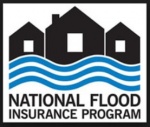Administration Proposes Reforms and Debt Relief for Flood Insurance Program

The Trump Administration yesterday called on Congress to forgive a portion of the National Flood Insurance Program’s (NFIP) debt. The Administration also proposed that Congress enact several reforms to NFIP to improve its solvency and encourage private participation in the flood insurance market.
In a letter to the Senate, Mick Mulvaney, the director of the Office of Budget and Management (OMB), said that, as a result of claims filed after Hurricanes Harvey, Irma, and Maria, the NFIP program is expected to exhaust its financial resources, including its $30.4 billion in borrowing authority, by the end of the month. After the authority expires, NFIP will not be able to pay any further claims. Mulvaney recommends that Congress pass legislation wiping out $16 billion of NFIP’s outstanding debt so that NFIP can continue to function in the near future.
The letter calls on Congress to pair the debt forgiveness with a series of reforms. To reduce costs and improve the NFIP’s financial health, the letter suggests that Congress prohibit the NFIP from providing flood insurance to any new structure built in a Special Flood Hazard Area (SHFA) and from underwriting new policies for any commercial property not currently insured through NFIP. The Administration also proposes that NFIP be given the authority to discontinue coverage for what it describes as “extreme repetitive loss” properties. To help NFIP build up its reserves, the Administration recommends Congress authorize it to increase the reserve assessments it charges policy holders whenever its reserve ratios fall below specific thresholds. Under the Administration’s proposal, any increase in reserve assessments would not count against the statutory 18 percent cap on premium increases for NFIP policies.
The Administration also asks Congress to take steps to promote private sector involvement in the flood insurance market. Specifically, Mulvaney suggests that Congress clarify that private polices satisfy NFIP’s mandatory purchase requirements, allow insurance brokers who sell NFIP policies through the Write-Your-Own (WYO) market to also offer private flood insurance policies, and require that more NFIP program data be made available to the public.
The letter also proposes that Congress establish a means-tested affordability program, to begin in 2021, that will shield NFIP policy holders earning less than 80 percent of area median income (AMI) from substantial rate increases that are currently scheduled under existing law. The Federal Emergency Management Agency estimates that 26 percent of NFIP policyholders in SFHAs, and 21 percent of policyholders outside of SHFAs, earn less than 80 percent of AMI.
It is unclear whether Congress will consider the Administration’s request. The current authorization for NFIP expires on December 8. Both the House Financial Services Committee and the Senate Banking Committee are currently considering proposals to reauthorize the program for at least five years and enact reforms to it.

